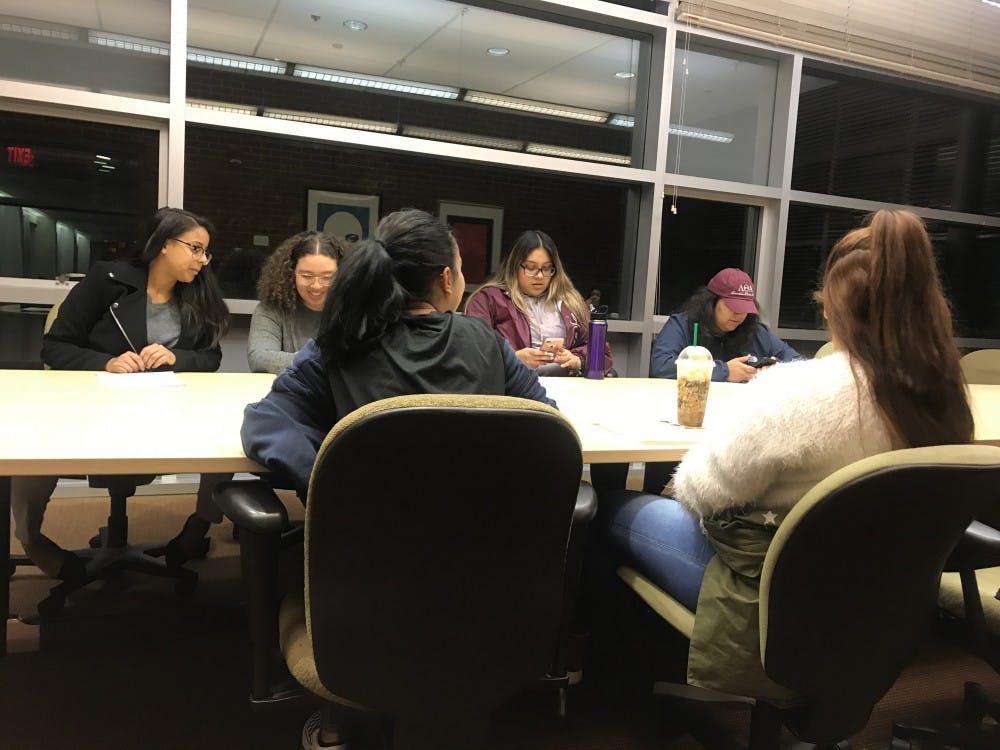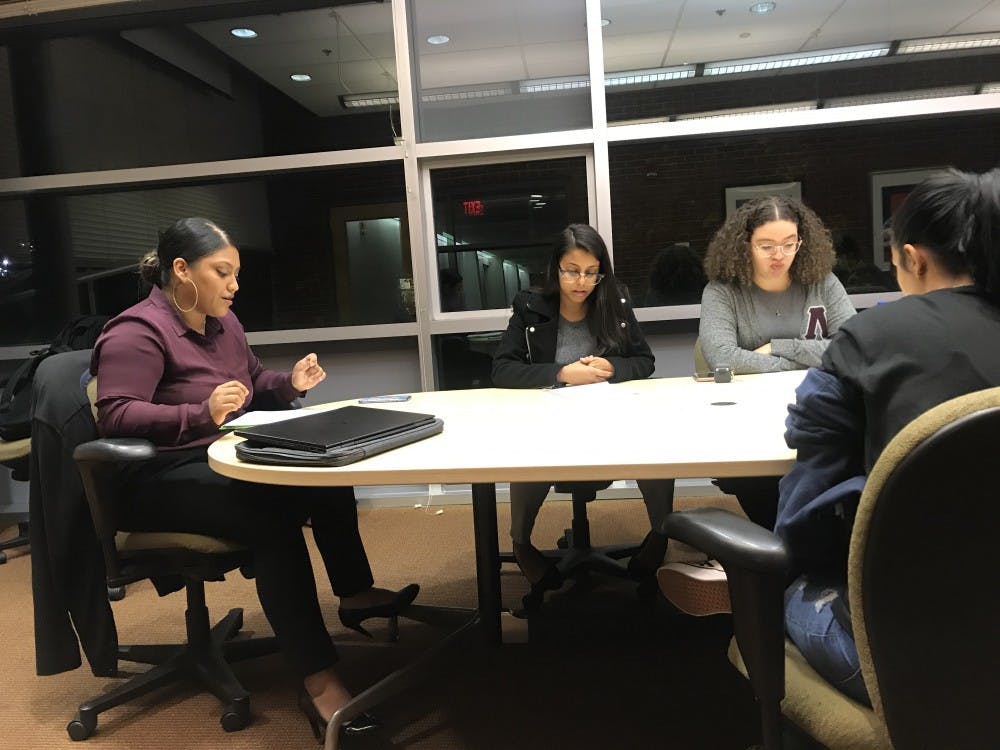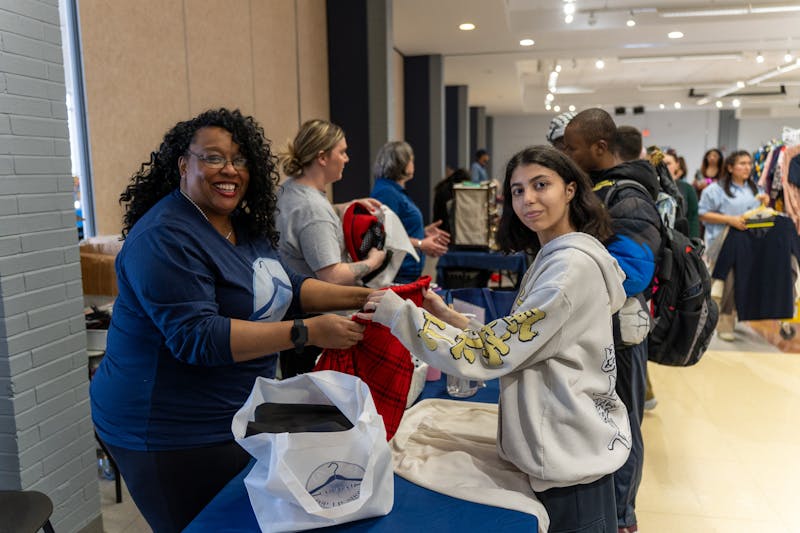This past Wednesday, Oct. 23, 2019, the Lambda Theta Alpha Latin Sorority hosted a discussion about the deportation and detention of immigrants in the United States. It was held in the Center for Academic Success (CAS), Room 205.
For two hours, members of the sorority sat at a conference table to share their thoughts on deportation and how it has affected them personally.
Participants talked about their struggles coming from an immigrant background and their loved ones being undocumented.
The purpose of the discussion was to get people to come out and share their thoughts comfortably, without judgment and to have the ability to speak on such a sensitive subject.

"It got a lot of people to be expressive. It was an open space for them to relate and bring more awareness to issues around immigration, because not a lot of people are talking about it," said Katiely Munoz, Treasurer of Lambda Theta Alpha.
Amid the discussion, Munoz shared a lot of personal stories relating to her feelings on immigration and the effect it has had on her life.
"My feelings are sensitive toward immigration. When I was doing the program, I was trying to hold back my tears and not get too personal," said Munoz. "It affects me knowing how I've seen my family go through the struggle of having a place in this country to ensure that I had an opportunity. They sacrificed everything."
Attaining U.S. citizenship is a long, strenuous process. Eligibility requirements and the process of naturalization can be found on the Citizenship and Immigration Services website. Applying for citizenship is costly and time consuming. In many cases, applications are rejected and the process must be completed all over again.
Many people come to the United States in search of opportunities they would not find in their home countries. They come from places with high crime rates, immense poverty and cutthroat political regimes. These people are willing to risk everything to come here in pursuit of a better life.
According to the Global Detention Project, the United States operates the largest immigration detention system in the world. In 2017, there were 323,591 immigration detainees collectively. The capacity of the average immigration detention center is about 44,000 people.
There are more than 200 facilities nationwide housing immigration detainees in local and municipal jails, privately owned detention facilities, juvenile detention centers, field offices and even prisons. Most of these facilities are subjected to overcrowding.
Data from Freedom for Immigrants shows that Texas, California, Arizona, Georgia, and Louisiana are the top five states with the largest pool of detainees per day. 60 percent of people are held in privately owned immigrant prisons. It costs $149.58 in taxpayer dollars to detain one person per day in an immigrant prison that is privately owned. The majority of detainees are from Mexico.
The conditions of detention centers in the United States are not favorable. Diseases such as flu and lice spread quickly. The top documented abuses in detention centers are medical issues, nutrition issues, prolonged detention and legal issues.
Centers aren't well maintained. Many detainees are held in deteriorating facilities. Abuse from guards and the lack of proper care has been alleged. Between 2018 and 2019, ICE has reported fourteen deaths of people who were in their custody.
The latest reported death took place on Sept. 10, 2019.
Parents are being separated from their children and families are broken up. Because of the sheer amount of detainees in a particular center, it is unrealistic for every person there to be taken care of.

To conclude the discussion, an episode of Patriot Act with Hasan Minaj was showcased. The episode "Immigration Enforcement" was played, which went more in-depth about the issue of immigration and the measures the Trump administration has taken toward it.
For more information about Lambda Theta Alpha, those interested can visit their website, Cougar Link or contact the Chapter President of Alpha Chapter of Lambda Theta Alpha at alphalta@kean.edu or alpha@lambdalady.org.







